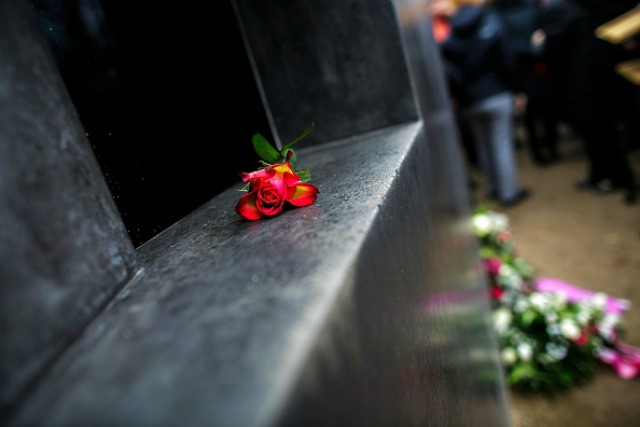Illinois Holocaust Survivors Blast Trump's Immigration & Refugee Ban
By Stephen Gossett in News on Feb 3, 2017 4:12PM

Getty Images / Photo: Carsten Koall
In the Chicago area, we've seen a strong sense of kinship between the Jewish community and the refugees and immigrants singled out by Donald Trump's ban, be it the Glencoe Reform synagogue who welcomed one of the last Syrian refugee families to arrive before the clampdown, or local Jewish organizations standing in solidarity with targeted peoples on International Holocaust Remembrance Day. But perhaps the most powerful affirmation yet came on Thursday, when Chicago-area survivors of the Holocaust spoke out publicly against Trump's executive actions at Illinois Holocaust Museum and Education Center in Skokie.
Survivor Aaron Elster, whose parents and sister killed by Nazis, warned of a slippery slope that might affect even more immigrants in the future. "I don't know if you want to know what I'd say to the president if he was here," Elster said, according to the Tribune. "For somebody to come along and say, 'These people cannot come in,' I believe that's a sliding slope. It starts that way. What group will be next?"
Museum president Fritzie Fritzshall, whose mother and two brothers were killed at Auschwitz was unmoved by the argument that the ban is only temporary. "Ninety days is a lifetime," Fritzshall said, according to the Reader. "Ninety days was a lifetime for us. When you're hungry and thirsty and cold, 90 days is a very, very long time to wait."
People from seven Muslim-majority nations are not allowed entry 90 days from when the executive order was signed, one week ago. The order temporarily suspends the refugee resettlement in the United States and bars Syrian refugees indefinitely.
Aside from the ban itself, the Trump administration has also come under fire for intentionally omitting mention of Jewish victims in a statement on International Holocaust Remembrance Day. Museum CEO Susan Abrams on Thursday said such a decision is tantamount to "soft-core denial" of the Holocaust, the Trib reports.